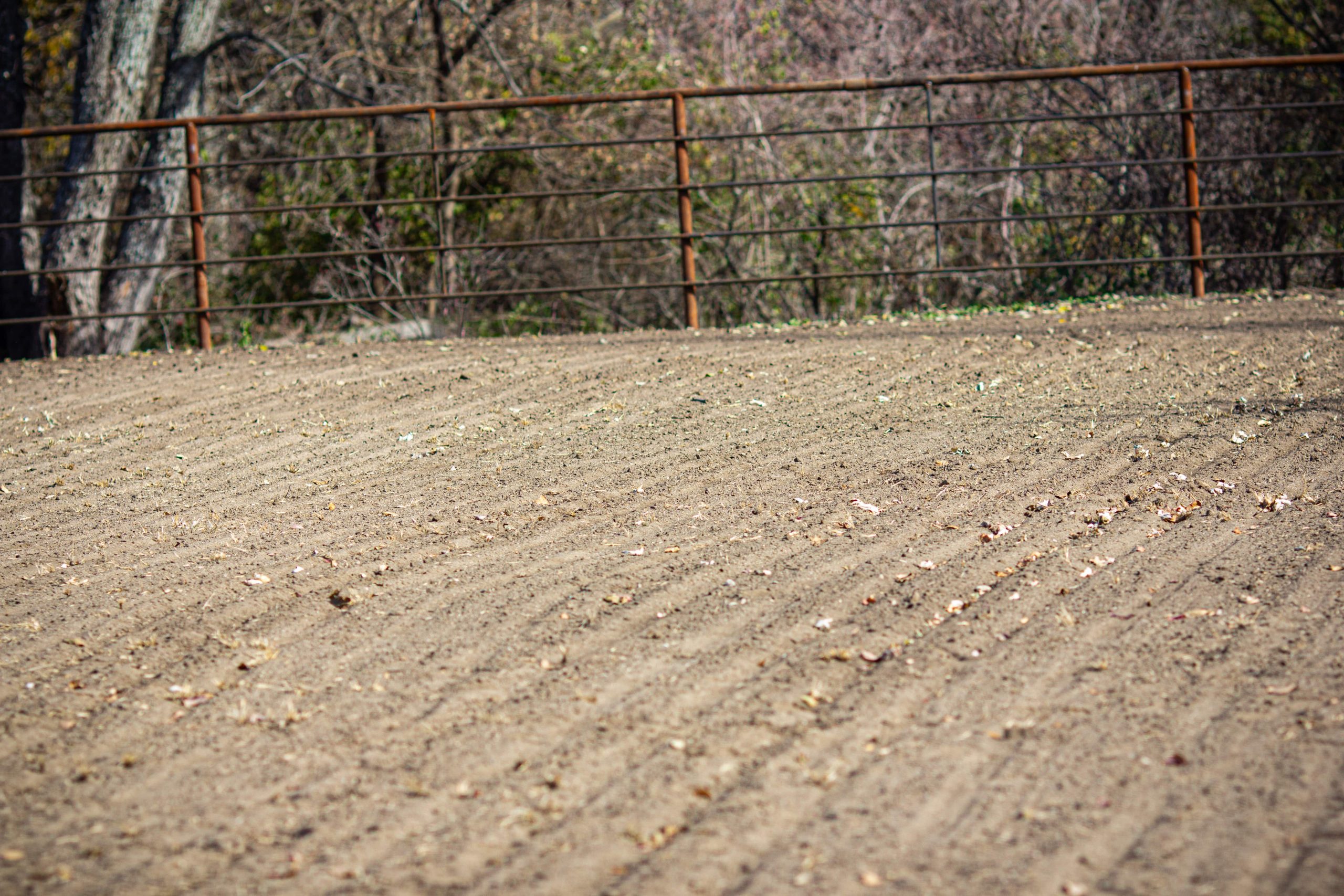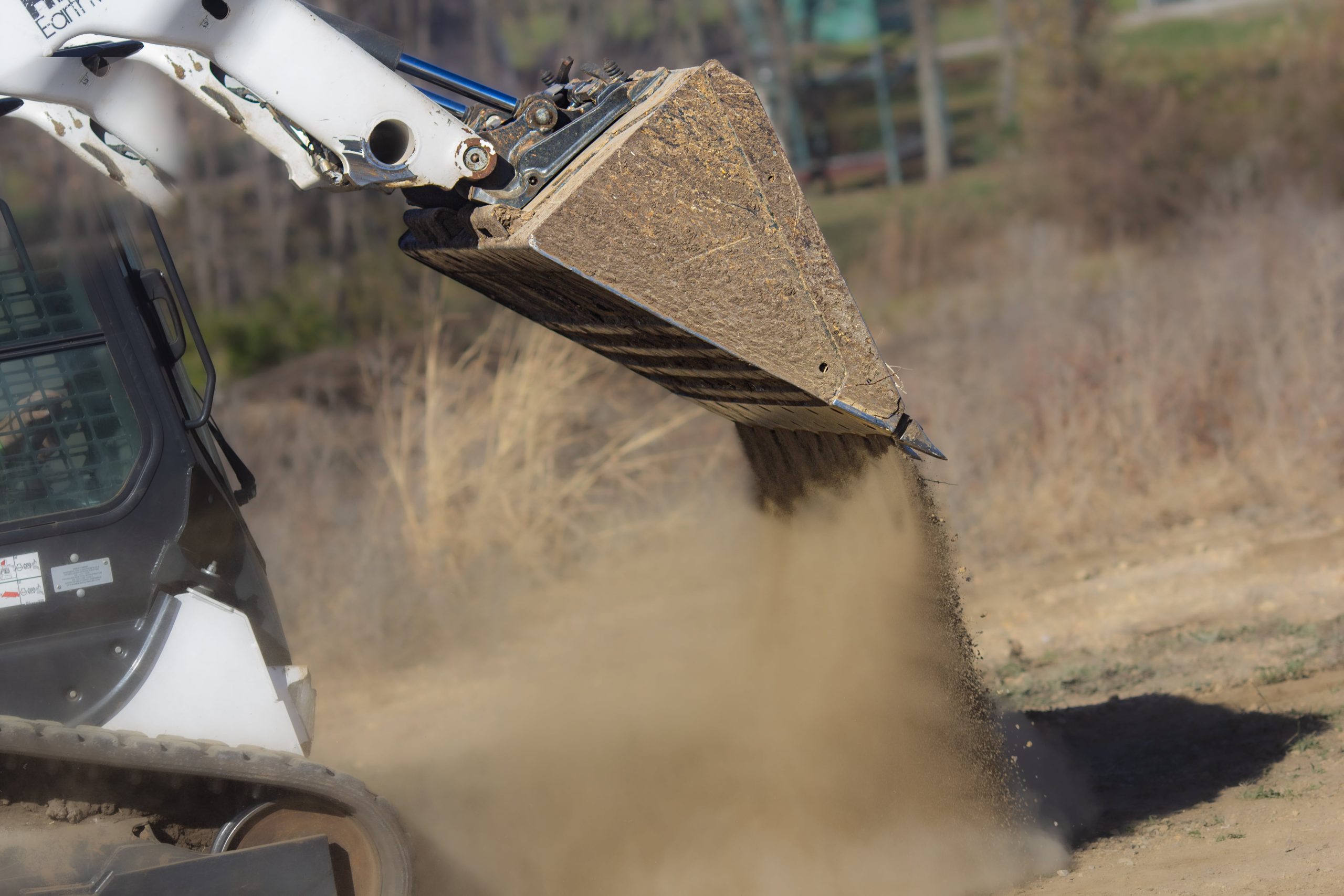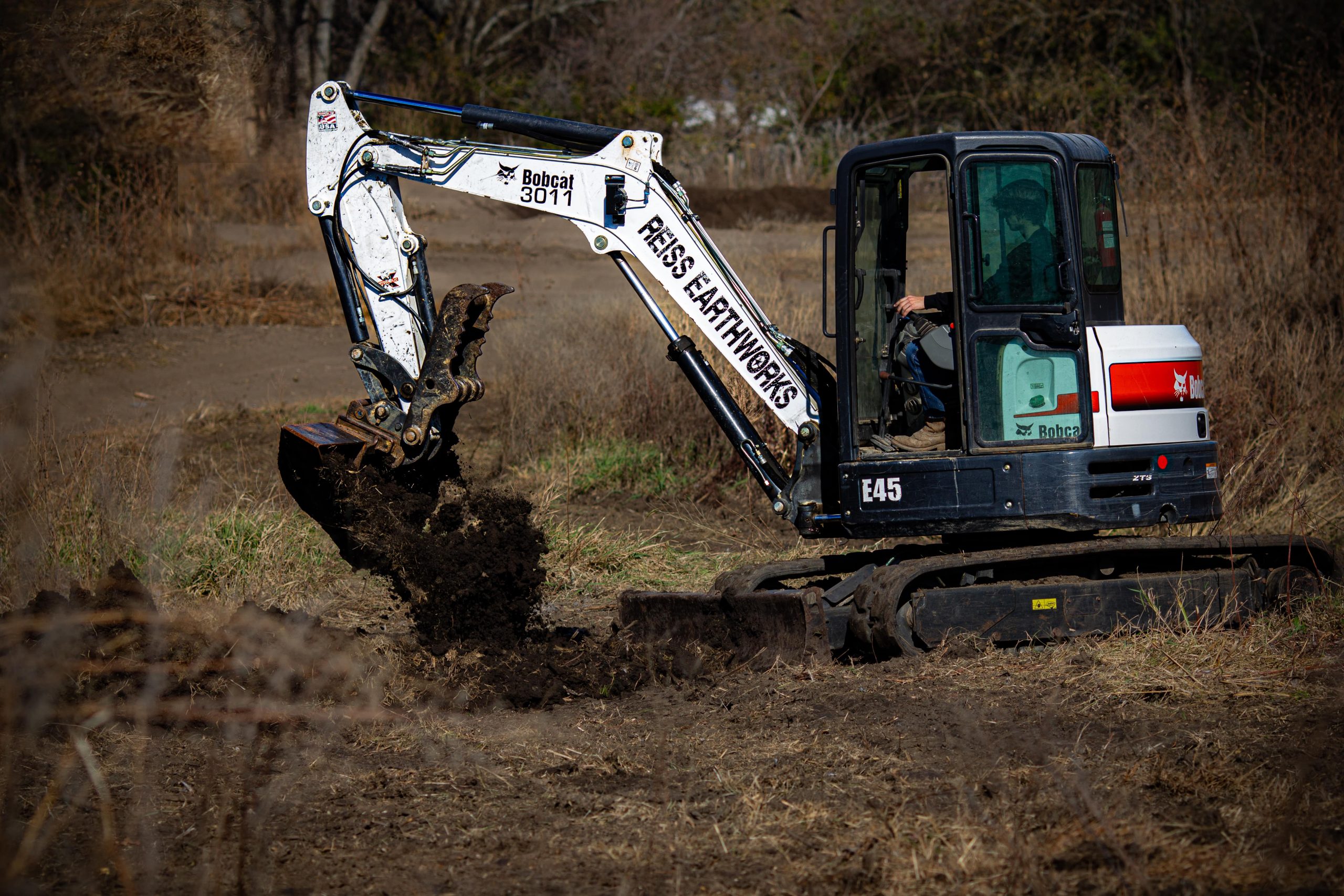
Reiss Earthworks specializes in comprehensive expert land grading, land leveling, site preparation, and grading services suited for nearly any project a business or landowner needs, while remaining conscious of the site conditions and water stewardship practices. Utilizing modern laser grading technology, state-of-the-art equipment, and know-how from years of experience in excavation, the Reiss Earthworks team provides quality precision land grading that’s done right the first time. If you are interested in expert grading services from a responsible and communicative team, you’ve come to the right place!
Grading is a fundamental operation within the realm of construction and land development, influencing the usability, stability, safety, and aesthetic appeal of a site. Proper land grading prevents water drainage issues, erosion, and foundation problems. This detailed process, although sometimes referred to as land leveling, almost always revolves around the manipulation of slope and elevation to achieve a desired contour, laying the groundwork for optimal drainage, priming the land for subsequent construction endeavors. Serving a myriad of purposes, grading is indispensable across residential, commercial, and industrial projects, acting as a foundational step in site preparation.
Providing optimal results in a time-conscious manner, Reiss Earthworks’ process starts with a consultation. During the consultation, we speak with clients about their ideas and needs for their projects. Various techniques constitute the arsenal of grading practices, with cut and fill methods taking center stage. Here, soil is either removed (cut) or added (fill) to craft the desired topography. The precision of laser and GPS-guided grading equipment ensure accuracy, allowing us to meet specific slope and elevation requirements with exactitude. Other grading techniques used for water diversion are swales, berms, and check dams. Laser grading technology can assist in swale and berm construction to ensure desired land slopes.
Swales, Berms, and Check Dams
A swale is a shallow, wide, open drainage channel or depression in the ground designed to manage and redirect surface water runoff. Swales are commonly used in landscaping and stormwater management to control the flow of water, prevent erosion, and facilitate the absorption of rainwater into the soil. Swales are a preferred option for sustainable landscaping and stormwater management. These eco-friendly features not only enhance the aesthetic appeal of outdoor spaces, but also play a crucial role in preventing soil erosion and reducing water runoff impact. Swales act as natural channels, allowing water to percolate into the soil, promoting groundwater recharge and reducing the risk of flooding.
Berms can be thought of as the opposite of a swale. Berms are raised mounds of soil often used to redirect water flow, create visual interest, or serve as a barrier. They can be strategically placed to control the movement of water and prevent erosion. In the realm of sustainable landscaping and stormwater management, berms stand as versatile features that complement the function of swales. While swales channel water along depressions in the ground, berms, in contrast, take on the role of raised mounds of soil strategically positioned to redirect water flow, introduce visual interest or serve as effective barriers against unwanted movement.
Check dams, akin to swales and berms, are small structures strategically built across swales or channels to slow down water flow. These engineered barriers serve as critical components in stormwater management, helping to reduce erosion and encouraging the deposition of sediments. By slowing the natural flow of water, check dams play a vital role in preventing downstream issues. They act as catch points, allowing sediment-laden water to settle before continuing its downstream journey. This intervention minimizes erosion and contributes to the overall effectiveness of comprehensive stormwater management systems.
Together with swales and berms, check dams form an integral part of sustainable landscape solutions, showcasing the importance of environmentally conscious water control practices. Whether incorporated into residential gardens, commercial landscapes, or larger urban projects, swales, berms, and check dams showcase a harmonious blend of environmental consciousness and practical water management, making them an essential element in the pursuit of sustainable and resilient outdoor environments.

The Importance of Grading
Effective drainage stands as the fundamental objective of the grading process. Poor drainage can usher in a host of issues, from water pooling to erosion, and even structural damage. Grading, therefore, becomes the avenue to guide water away from structures, mitigating potential problems such as foundation deterioration and flooding. Understanding the intricacies of soil types is a fundamental aspect of grading, as different soils exhibit varying compaction characteristics. Proper compaction during grading is instrumental in securing soil stability and minimizing settlement risks over time.
Expanding beyond the confines of construction, grading assumes a key role in landscaping ventures. Its transformative power extends to the creation of visually appealing terrains, facilitation of vegetation growth, and provision of functional outdoor spaces. If you’re looking for a service like skid steer land leveling, please also reference our site leveling service page. Grading emerges as a foundational cornerstone in construction and land development. Its role, whether in facilitating drainage, contouring land for desired uses, creating a surface for assets, recreational field leveling, or sculpting aesthetically pleasing landscapes, paves the way for successful, sustainable projects within the construction industry.
It’s important to note that specific steps and material choices can vary based on factors such as climate, soil conditions, construction modalities, and intended use. Consulting with professional services such as civil or geotechnical engineering, or hydrologists is always a good idea to tailor the installation process to the unique circumstances of your project.
























